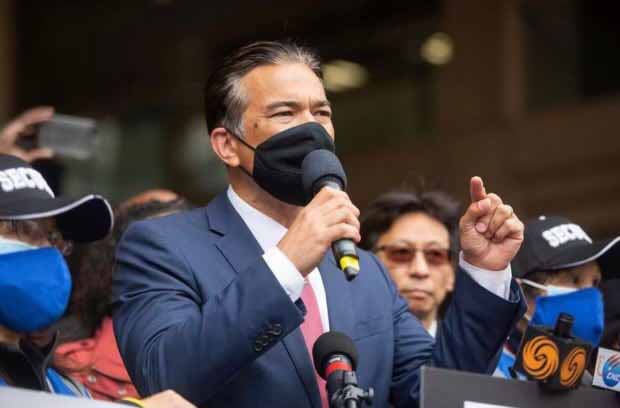
CALIFORNIA Attorney General Rob Bonta this week announced the release of initial guidelines and protocols for the state’s Department of Justice to investigate fatal officer-involved shootings of unarmed civilians.
Assembly Bill 1506 proposed the establishment of the California Police Shooting Investigation Teams (CaPSIT), which will be handled by the state Department of Justice instead of local law enforcement and district attorneys as it had been prior to the effective start of July 1, 2021.
“One of the most important tasks ahead for public safety and our society is building and maintaining trust between our communities and law enforcement,” Bonta said in a statement on Wednesday, July 7. “Impartial, fair investigations and independent reviews of officer-involved shootings are one essential component for achieving trust.”
Under Assembly Bill 1506, fatal police shootings of unarmed civilians will be investigated and reviewed for potential criminal liability, and all incidents must have a written report detailing why criminal prosecution was not sought or file criminal charges. The Department of Justice is expecting 40 to 50 officer-involved shootings annually based on historical data.
“Today, California is strengthening our state’s mechanisms for accountability and transparency in investigations of officer-involved shootings. These cases are never going to be easy, but the California Department of Justice will follow the facts and seek to ensure every Californian is afforded equal justice under the law,” Bonta added.
Bonta also announced outreach and services measures for impacted family members such as full disclosure to the decedent’s family and an orientation to the criminal justice and investigation process. The services will include counseling referrals, translator services, the return of personal property when applicable, and crisis intervention.
“I’ve heard firsthand the hurt and the pain that too many families and communities feel in the moments after these incidents,” Bonta said. “I have witnessed the lack of trust that these investigations will be treated fairly by our criminal justice system.”
The law also has a communications policy that requires maximum disclosure of incidents to the media without interrupting the investigation that includes the date, time, location, and law enforcement agencies involved.
CaPSIT, a personal of teams that will be spread across California according to historical patterns of officer-involved shootings, are assigned to immediately deploy to an incident scene after a local law enforcement notification has been made and will serve as independent special agent investigators that will be turned over to the Department of Justice’s Special Prosecutions Section.
For years, police officers who fatally shot unarmed civilians have gone unprosecuted, for reasons cited like insufficient evidence. CaPSIT was created to conduct follow-up investigations for these shootings.
The law was co-authored by Bonta when he was a lawmaker and Assemblyman Kevin McCarty (D-Sacramento), who said he was concerned that the state Department of Justice had denied requests from community leaders to undertake independent investigations of several high-profile police shootings.
“Police shouldn’t police themselves, and the current system is fraught with conflicts of interest,” McCarty said during a debate on the bill.
McCarty said he first proposed the legislation in 2015 and 800 people have since been shot and killed by police in California.
Meanwhile, Bonta said the investigations would not be easy but expected local law enforcement to cooperate.
“I’m honestly not expecting a lot of pushback or tension or obstacles,” Bonta said at a press conference on Wednesday, July 7. “We will be prepared for any that do arise.”
Community organizers like Black Lives Matter Los Angeles co-founder Melina Abdullah said the law is not enough.
“One of the shortcomings of the new law is that the Attorney General’s office must work collaboratively with local law enforcement so basically what we see is kind of a transference of the kind of muddied waters that the District Attorney finds themselves in to the Attorney General,” said Abdullah.








